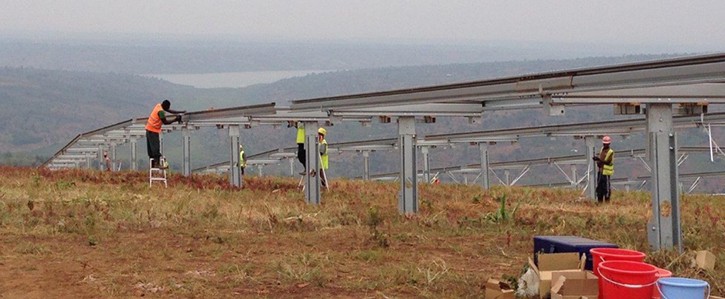

U.S. Spends Millions to Give Africa “Clean” Energy


As part of a broad mission to end extreme poverty worldwide the Obama administration is giving unproven startups millions of dollars to create solar power in Africa. It’s a multi-million-dollar U.S. initiative to inspire entrepreneurs and investors to help bring enough connections so households in sub-Saharan Africa have access to clean, modern and affordable electricity. Uncle Sam will pitch in around $36 million and the money will flow through Power Africa, a program created by President Obama to increase the number of people with access to power in the world’s second-largest continent.
More than 600 million people in sub-Saharan Africa live without access to electricity, according to one of the program’s websites, and most countries are unlikely to connect their entire populations to grid electricity for years, if not decades. As a result, many households rely on expensive, dangerous, pollution-causing kerosene and diesel fuel for their energy needs. The program’s mission is to spur a vibrant marketplace of enterprises that provide off-grid energy solutions that meet the needs of low-income consumers across the African continent. This comes with a hefty price tag and, though the United Kingdom and private foundations will also contribute, American taxpayers will dole out the largest chunks of cash for the African endeavor.
It appears to be the international version of the president’s disastrous—and costly—plan to create innovative clean technologies domestically by filling the coffers of fly-by-night companies that never delivered. Instead, they went bankrupt after getting billions of dollars from American taxpayers under a Department of Energy (DOE) initiative that doled out $16.1 billion for more than two dozen projects. Among the recipients was a now-defunct northern California solar panel firm named Solyndra that abruptly folded after getting $535 million from the DOE to promote green energy. More than 1,000 workers got laid off. Other green energy companies that crashed after getting huge sums of money from the government include ECOtality, a firm that promised to make charging stations for electric cars, and Fisker Automotive, which was supposed to develop a wheelchair-accessible “green” van. ECOtality collapsed after getting $99.8 million and Fisker went under after receiving nearly $200 million.
Now the U.S. is funding similar experiments abroad in the name of ending poverty. A $4 million allocation announced this week will be divided among eight new businesses that promise to revolutionize household solar power across Africa. The Obama administration claims the money is “seed funding” for solar start-ups to support geographical expansion throughout Africa, test new business models and tap into private and public financing. It will also help bring down costs for customers in Africa, which is unlikely to be much of a concern for hard-working American citizens struggling to pay their own electric bill. Among the start-ups that will get cash this round are firms in Nigeria, Uganda, Kenya and Zambia with names like Greenlight Planet, Fenix and Orb Energy that vow to expand solar energy and help rural customers.
Under Obama the U.S. has been extremely generous in funding a variety of global green energy projects, though there are no measures in place to assure completion. Just last month Judicial Watch reported that the administration is spending $2 million to build a green bus corridor in Mexico and a bicycle highway in Colombia. Earlier in the year Judicial Watch reported about corruption in a $25 million project to help Guatemala combat the ills of climate change. Last summer the U.S. spent a quarter of a million dollars to help make Morocco green by helping the North African nation develop innovative solutions to pressing environmental issues such as waste management, recycling and energy efficiency. The cash will continue flowing to similar projects in third-world countries.















